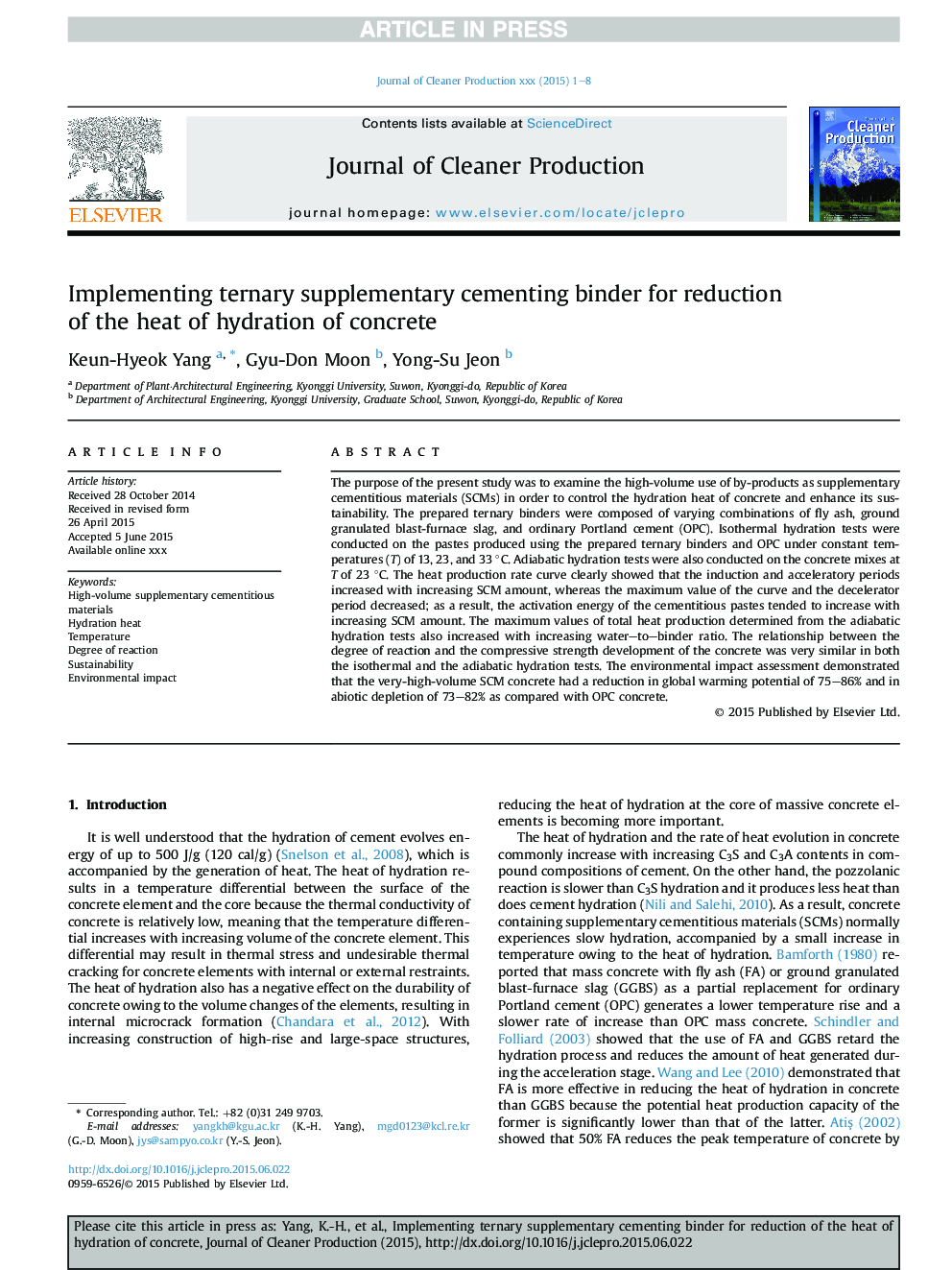| Article ID | Journal | Published Year | Pages | File Type |
|---|---|---|---|---|
| 10688092 | Journal of Cleaner Production | 2016 | 8 Pages |
Abstract
The purpose of the present study was to examine the high-volume use of by-products as supplementary cementitious materials (SCMs) in order to control the hydration heat of concrete and enhance its sustainability. The prepared ternary binders were composed of varying combinations of fly ash, ground granulated blast-furnace slag, and ordinary Portland cement (OPC). Isothermal hydration tests were conducted on the pastes produced using the prepared ternary binders and OPC under constant temperatures (T) of 13, 23, and 33 °C. Adiabatic hydration tests were also conducted on the concrete mixes at T of 23 °C. The heat production rate curve clearly showed that the induction and acceleratory periods increased with increasing SCM amount, whereas the maximum value of the curve and the decelerator period decreased; as a result, the activation energy of the cementitious pastes tended to increase with increasing SCM amount. The maximum values of total heat production determined from the adiabatic hydration tests also increased with increasing water-to-binder ratio. The relationship between the degree of reaction and the compressive strength development of the concrete was very similar in both the isothermal and the adiabatic hydration tests. The environmental impact assessment demonstrated that the very-high-volume SCM concrete had a reduction in global warming potential of 75-86% and in abiotic depletion of 73-82% as compared with OPC concrete.
Related Topics
Physical Sciences and Engineering
Energy
Renewable Energy, Sustainability and the Environment
Authors
Keun-Hyeok Yang, Gyu-Don Moon, Yong-Su Jeon,
